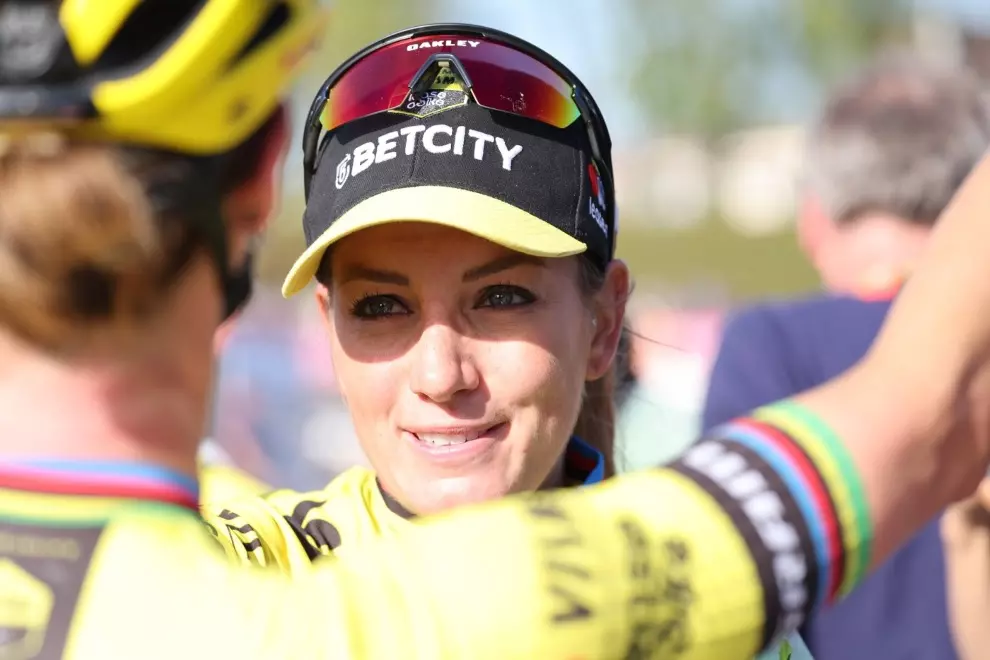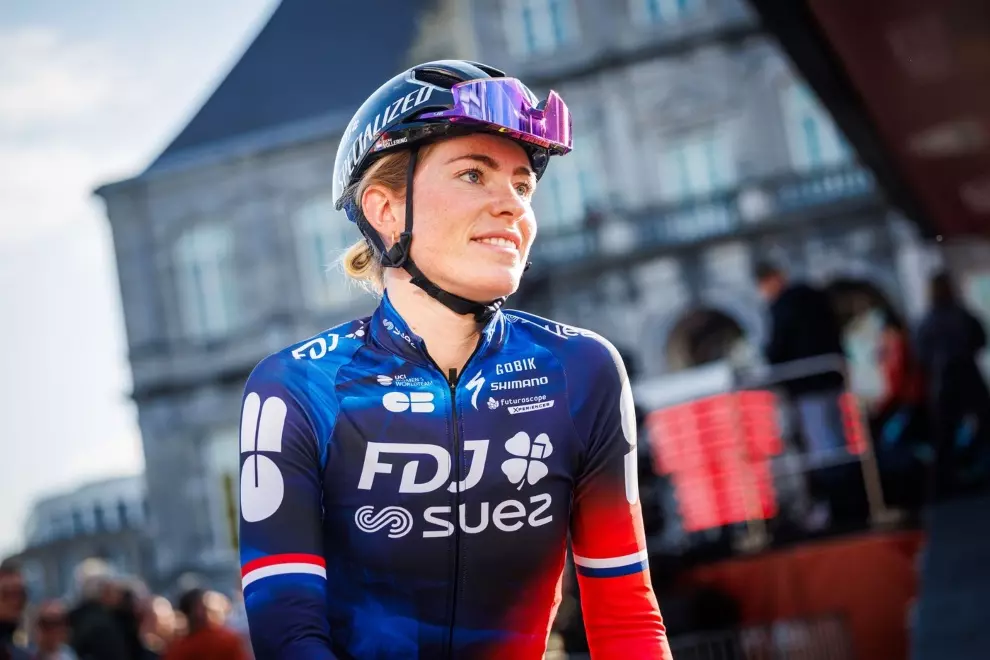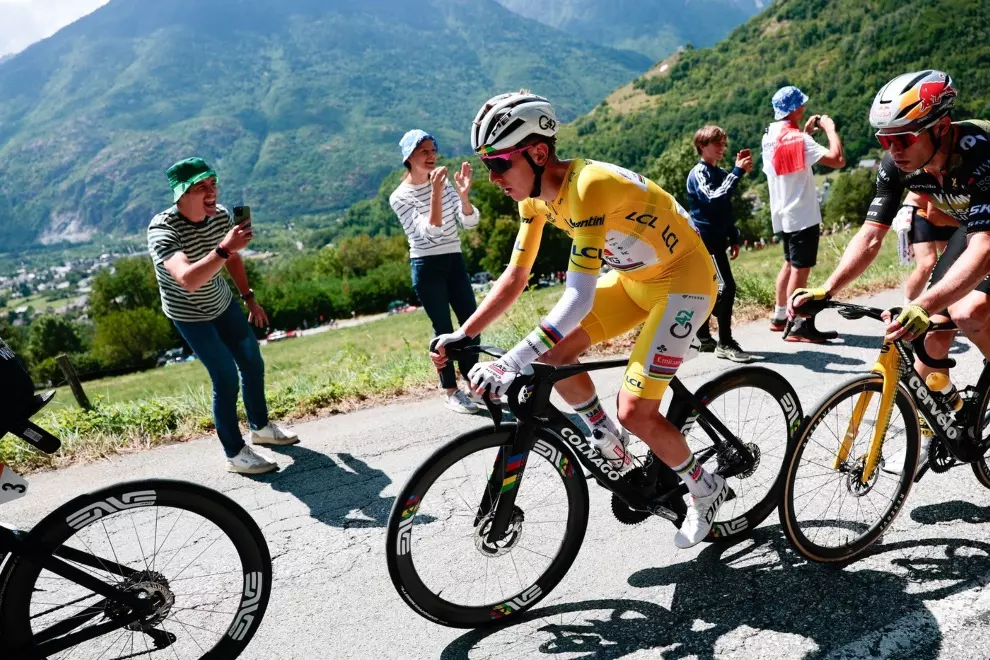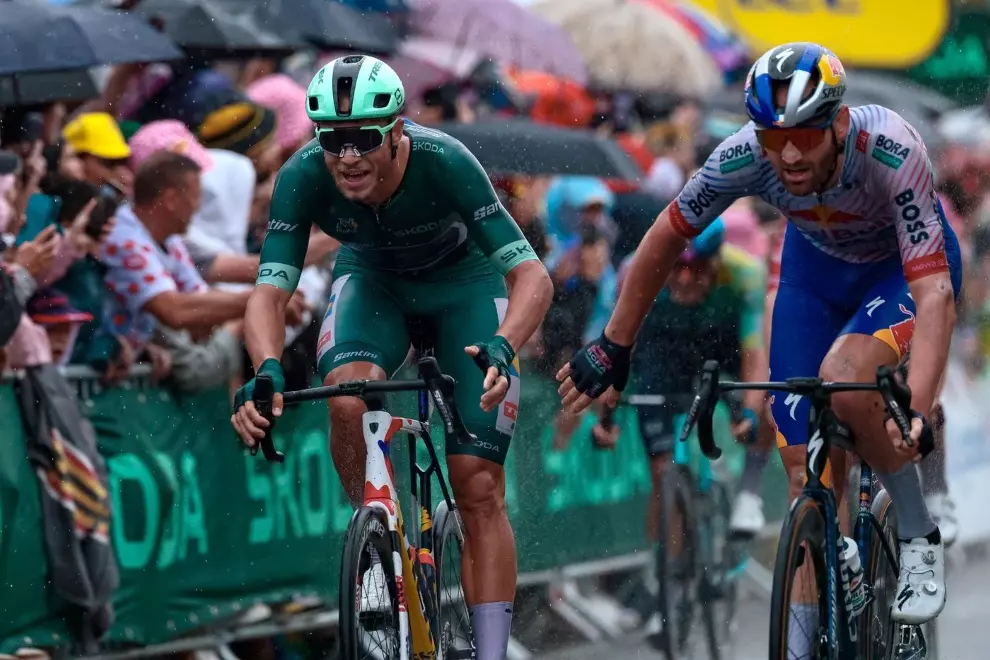At 33, Roglič is nearing the end of a fabulous career that includes ten Vuelta stage wins, victories in three Tour de France stages as well as wins in eight Classics and the gold medal in the 2021 Summer Olympics ITT. Ten years younger than his rival, Evenepoel has already won the Vuelta and is at the beginning of a career that may eventually make him one of the legends of the sport.
Both riders have had excellent spring seasons. Roglič won both races he entered, the Tirreno-Adriatico, where he took all three major jerseys on offer, and the Volta Ciclista a Catalunya. In that race, Evenepoel finished second in the GC, 6 seconds behind the Slovenian. The third-place finisher, João Almeida (UAE Team Emirates), finished a further 2 min 05 sec adrift, which is an enormous distance in a race consisting of only seven stages.
The comparison takeaways from that race tell an interesting tale. Roglič seemed to take the steep mountains easily, without appearing near his limit, whereas his Belgian rival appeared to work much harder, and occasionally struggle, to stay close. On the other hand, on the one moderate climb in the Volta, Evenepoel beat Roglič by 2 seconds.
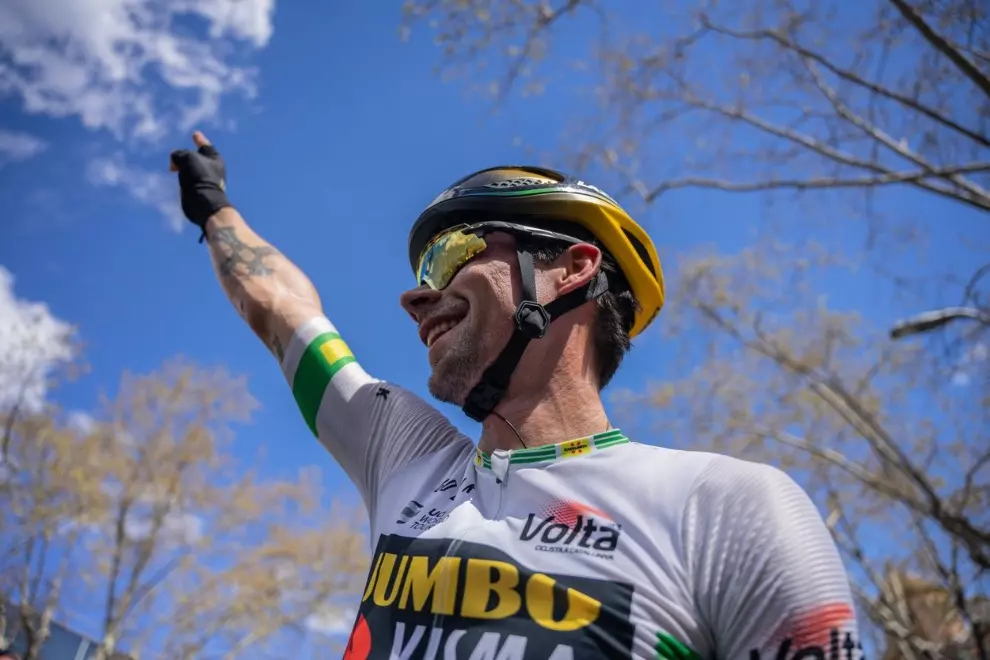
This year’s Giro has three, perhaps four, very difficult mountain stages where the Slovenian could be expected to gain some time on his Belgian rival. However, the race also has three ITTs, ranging in distance from 18.6 to 36 km. And based on recent races, Evenepoel appears to be the better time-trial rider, especially when you consider his performance in the recent Liège-Bastogne-Liège, where he left his rivals looking very tired while riding solo the final 29 km to easily win the last spring Classic. Roglič was once an excellent ITT rider and has 17 time-trial victories on his CV, including in the Olympics. But age may have blunted his speed.
Perhaps the key stage will be the penultimate one with the final time trial, 18.6 km from Tarvisio to Monte Lussari, which ends with a Category 1 climb, 7.2 km with an average gradient of 11.2%, and ramps up to 18%. Roglič’s last Grand Tour mountain time trial, in the 2020 Tour de France, did not go well. He entered the stage, also the race’s next-to-last, with a healthy lead over Tadej Pogačar, but faded badly, finishing nearly 2 minutes behind his countryman, who won his first Tour de France as a result. Presumably, Roglič took away an important lesson or two from that experience.
On the face of it, the race looks like a toss-up between the two riders. However, one factor may count in Evenepoel’s favour: the ten-year difference in their ages. Physical contests between experience and youth almost always seem to go to the youngster.
If the two favourites falter, several excellent riders have a good chance to ride away with the GC, especially the only previous Giro winner in the race, Tao Geoghegan Hart (Ineos Grenadiers). He has been improving all spring, finishing sixth in the Vuelta a Andalucia, third in the Tirreno-Adriatico and winning the Tour of the Alps. He has a smart, strong team behind him, which includes another possible candidate for the win, Geraint Thomas, but if Geoghegan Hart wins this year, it will be an even bigger surprise than his 2020 Giro triumph.
Thomas won the Tour de France in 2018 and finished second the following year but he will turn 37 on May 25 and has had a very modest spring season, with not a single top-ten finish to his credit.
The 24-year-old João Almeida, however, is a different story. He finished third in the Volta Ciclista a Catalunya (behind Roglič and Evenepoel) and second in the Tirreno-Adriatico (behind Roglič but ahead of Geoghegan Hart). That makes him a strong podium candidate and probably the best of the rest. Other possibilities include Aleksandr Vlasov (Bora-Hansgrohe), EF Education-EasyPost’s Rigoberto Uran and his teammate High Carthy. But it’s difficult to look beyond the two big favourites for the rider who will occupy the top step of the podium when the race ends in Rome on May 28.

